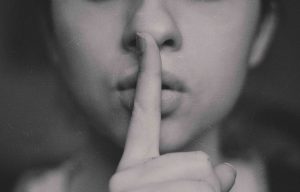It is interesting to note that many people who say hateful things immediately run to the “freedom of speech” mantra when they are called out on it. This is the kind of dilemma that the law in Chicago has to contend with. In the worst-case scenarios, a successful case of defamation is brought to bear and there are significant consequences for the perpetrators. The internet has allowed for anonymous speech to prosper, and somehow people have forgotten their basic responsibility for common decency. On a daily basis, individuals and institutions are slandered and defamed on the internet in the knowledge that the fight back will be difficult or nearly impossible. The statute of limitations may protect those who count on the possibility that the victim will take an inordinately long to complain to the authorities.
Chicago Decides to Weigh in
For a long time, there was a misconception that you can only defame the rich and famous. Over time, the citizens of Chicago have recognized the fact that virtually everybody but the dead can be defamed and slandered. Moreover, the results of such actions can be quite serious, including the loss of employment and valued relationships. The court will normally deal with the plaintiff, defendant, and any other third parties. It is much harder to prove that you are affected by slander or defamation if you do not fall into the two principle parties in the cause of action. Indeed, there is a substantial body of case law to show that the courts are particularly careful to exclude unfounded causes that are based on some unproven pain and suffering.
It is critical to decide earlier whether the perpetrators and victims are anonymous or identified under the terms of the reform agenda. If a reasonable member of the public cannot identify who or what is being slandered, then it becomes difficult to prove the case. On the other hand, if both the slanderer and their victims are known, the courts will want to test the case and impose appropriate sanctions. One of the aggravating features is the existence of a prior warning that the aggressor has ignored. The courts will also consider the history of the defendant to ascertain whether it is relevant to the case.
The Diversity of Perspectives
What is free speech to one person in Chicago may be slander to another. Some people even go as far as arguing that there is no role for the state to play because this could end up being a bunch of insults that are being exchanged by people who are not getting along. That is a wrong reading of the law. The cause of action is the actual or potential damage that is caused to an individual or institution. It is already proven that slander and defamation can cause harm, so it is only right that the law would intervene at a certain point.
Nevertheless, the attorneys may be involved if there is exploitative prosecution. There are certain individuals who are always looking for a cause of action regardless of the facts on the ground or the lack of any damage to them. The courts are particularly sensitive to the possibility that there may be plaintiffs who want to abuse the system. That is why preliminaries are so important so that the judge and jury can determine what meets the standards for a full prosecution.
The provisions of 740 ILCS 145 are not too different from the template that was used for federal cases or other provisions in other states of the USA. The most important for the attorney to remember is the fact that the law on slander and defamation is constantly being adjusted in order to cope with new modalities such as the internet. If you need an excellent lawyer for dealing with such a case, call David Freidberg Attorney at Law at 312-560-7100 today.
(image courtesy of Kristina Flour)
 Chicago Criminal Lawyer Blog
Chicago Criminal Lawyer Blog



